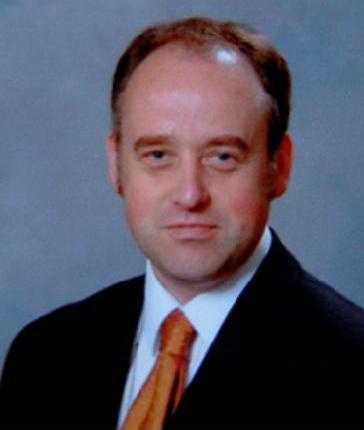
Peter is talking about spirituality - a nice follow on from the last post. Peter makes a nice compliment of Robert's congruent presentation style in not using PowerPoint slides: but Peter is using slides for his own benefit - it is late in the day and these slides are an expedient. Peter has a great interest in spirituality but recognises the difficulty of introducing this topic into secular organisations. There's something of a pre-paradigmatic-ness about spirituality in leadership: it seems to come before everything.
As for Wilberforce, who is credited as abolishing leadership, and his leadership, this is around his visibility: he was a great orator. He was an appalling organiser, but a brilliant communicator. Peter's point is to offer, via Wilberforce and this paper, an interpretation of the leadership discourse. He's talking about 'complex responsive processes' after Stacey. Wilberforce was educated, wealthy and well connected. Peter is now launching into a deep genealogy of Wilberforce's network - I can only direct you to his paper for more details. And I find myself searching Peter's text, his spoken text, for a distillation, rather than let the story wash over me which is what I know I should do to extract the most utility from his thoughts. I wonder what a poststructural, new historicist take on this history would reveal?
Back to Stacey: we don't focus on individual if we want to understand how complex processes work. This is best understood in the way the conversation changed: the nature of conversation and conversational themes. This theme of conversation also relates to spirituality: using the hub of conversation that Wilberforce was as a force for Christian change, where true religion is the union of the soul with God. Peter's summary slide, outlining leadership, spirituality and complexity, picks up the words 'values', 'beliefs', 'integration', 'communal' and 'community'. The slide then beautifully (technologically) merges into a whole - leadership, spirituality as complex processes. So, some implications? Leadership promoting non-material values. Is there then a warrant that is issued via parrhesia, that it is okay to upset friends and people generally by ones frankness of speech? Is it truth above all?
As for Wilberforce, who is credited as abolishing leadership, and his leadership, this is around his visibility: he was a great orator. He was an appalling organiser, but a brilliant communicator. Peter's point is to offer, via Wilberforce and this paper, an interpretation of the leadership discourse. He's talking about 'complex responsive processes' after Stacey. Wilberforce was educated, wealthy and well connected. Peter is now launching into a deep genealogy of Wilberforce's network - I can only direct you to his paper for more details. And I find myself searching Peter's text, his spoken text, for a distillation, rather than let the story wash over me which is what I know I should do to extract the most utility from his thoughts. I wonder what a poststructural, new historicist take on this history would reveal?
Back to Stacey: we don't focus on individual if we want to understand how complex processes work. This is best understood in the way the conversation changed: the nature of conversation and conversational themes. This theme of conversation also relates to spirituality: using the hub of conversation that Wilberforce was as a force for Christian change, where true religion is the union of the soul with God. Peter's summary slide, outlining leadership, spirituality and complexity, picks up the words 'values', 'beliefs', 'integration', 'communal' and 'community'. The slide then beautifully (technologically) merges into a whole - leadership, spirituality as complex processes. So, some implications? Leadership promoting non-material values. Is there then a warrant that is issued via parrhesia, that it is okay to upset friends and people generally by ones frankness of speech? Is it truth above all?


1 comment:
Unfortunately Spiritual Intelligence (SQ) is often negatively associated with Christianity. The founding ideas for SQ seem to encompass many religious/spiritual concepts. The Spirituality it considers is about feeling happy with your life, looking for a meaning and purpose and to achieve the most you can while being in harmony with all aspects of your life (work, relationships, riends, attitudes etc.) I know many Christians who lack EQ and many people with no religious leanings who have well developed EQs.
EQ enables us to operate in business and life with morality, social concience, and in empathy with our fellow humans. Sounds like a recepie for Trust and the development of true leadership.
Wilbeforce realised that slavery was abhorent and that considering humans as just commodoties was wrong. We need to think about using developing country workers in sweat shop conditions, with no real rights or protection in thesame light. Children payed pennies to sew football boots sold for tens of pounds - sounds like slavery to me.
Post a Comment